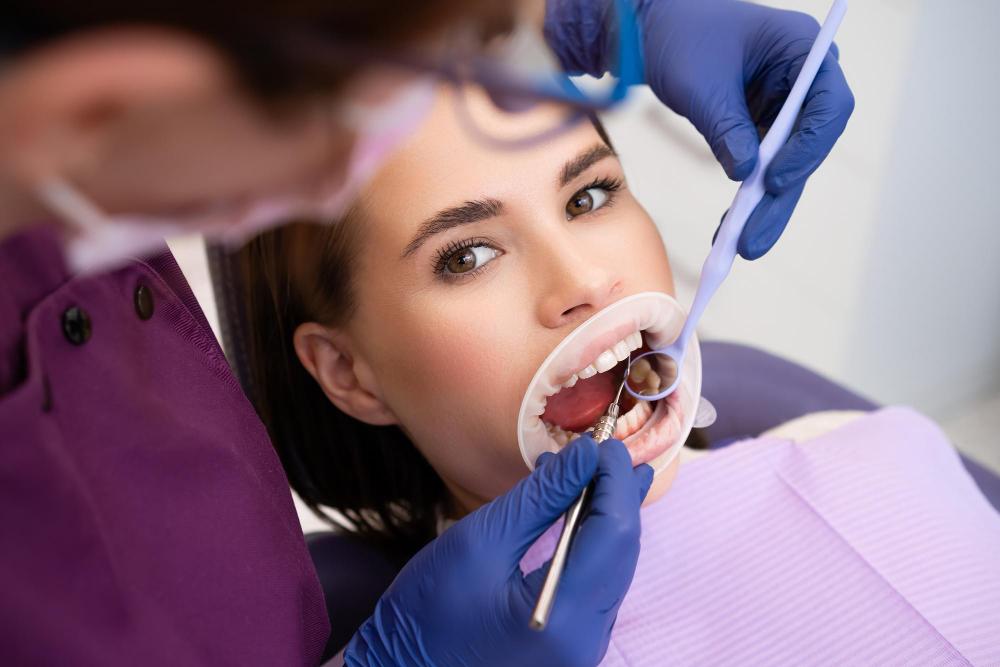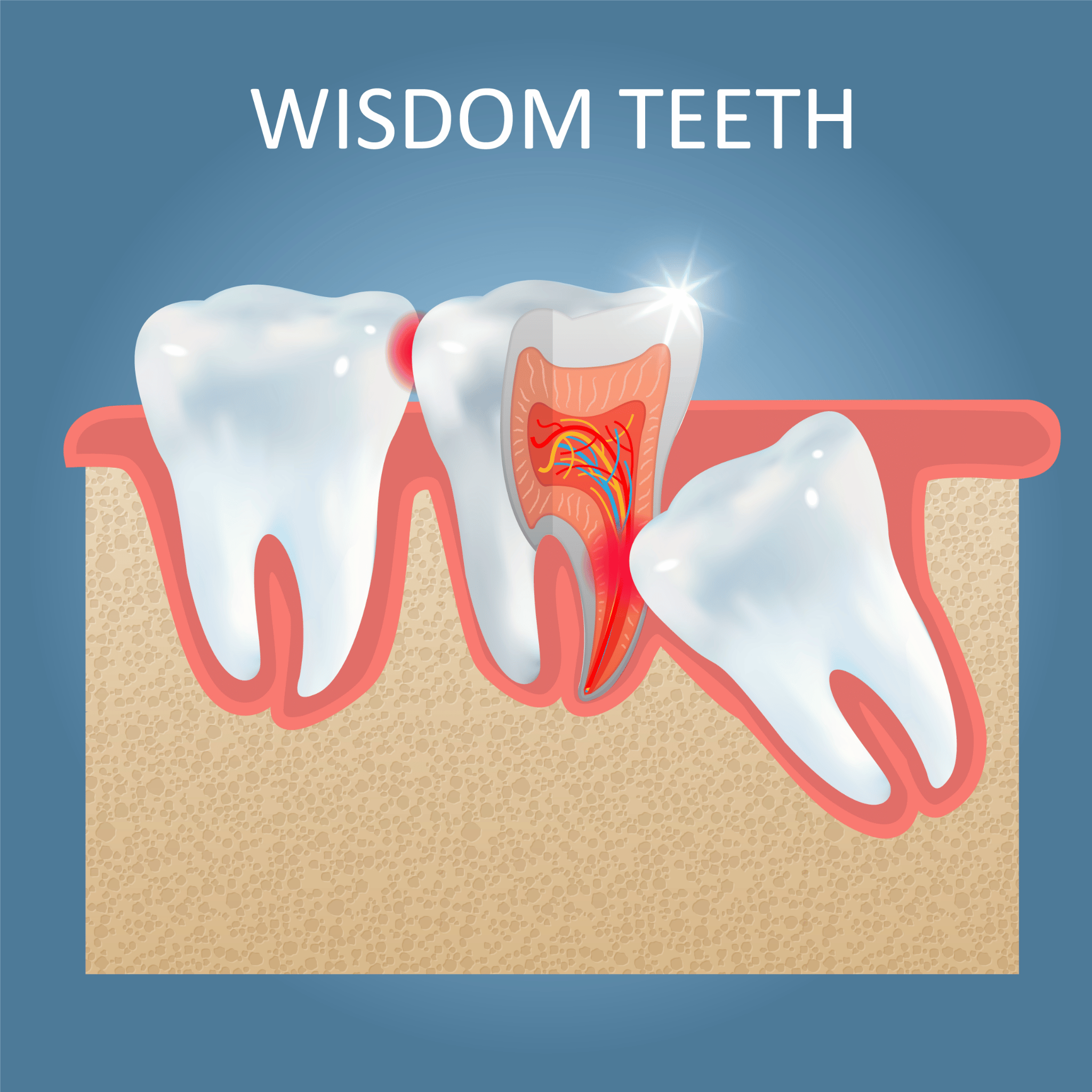
Wisdom tooth removal is a common dental procedure used to extract one or more of the third molars, commonly known as wisdom teeth, located at the back of the mouth. These teeth often cause pain, crowding, or infections due to their improper growth or lack of space. At Cosmosurge, Dr. Aishwarya A. Gangawane provides safe and efficient wisdom tooth extractions, ensuring patients experience minimal discomfort and quick recovery.
Why Wisdom Teeth May Need to Be Removed
Wisdom teeth, which typically erupt between the ages of 17 and 25, are often problematic because there is not enough space in the mouth for them to grow properly. This can lead to several issues, including:
- Impacted Wisdom Teeth:
- Wisdom teeth may become trapped beneath the gums or grow at an angle, leading to pain, swelling, and infection.
- Overcrowding:
- As wisdom teeth attempt to emerge, they can push against other teeth, causing misalignment and crowding in the mouth.
- Infections and Cavities:
- Partially erupted wisdom teeth can create openings in the gums that are difficult to clean, increasing the risk of infection and decay.
- Damage to Nearby Teeth:
- Wisdom teeth that are impacted or misaligned may press against neighboring molars, leading to damage or bone loss.
Removing problematic wisdom teeth helps prevent these complications and improves overall oral health.

Wisdom Tooth Removal Procedure at Cosmosurge
At Cosmosurge, Dr. Aishwarya A. Gangawane uses advanced techniques and a patient-centered approach to ensure wisdom tooth removal is as comfortable and stress-free as possible. The process typically involves the following steps:
1. Consultation and Evaluation
Before the procedure, a comprehensive consultation is conducted to assess the condition of your wisdom teeth and determine whether removal is necessary. X-rays or CT scans are taken to evaluate the position of the teeth and surrounding structures. During this visit, Dr. Gangawane will explain the procedure and answer any questions you may have.
2. Anesthesia
To ensure a pain-free experience, wisdom tooth removal is typically performed under local anesthesia to numb the affected area. For patients with anxiety or more complex extractions, sedation options, including intravenous (IV) sedation or general anesthesia, are available to ensure maximum comfort.
3. Tooth Extraction
Depending on whether the wisdom tooth is fully erupted or impacted, the extraction process may vary:
- Simple Extraction: If the wisdom tooth has fully emerged, Dr. Gangawane will loosen and remove it using specialized dental instruments.
- Surgical Extraction: For impacted or partially erupted teeth, a small incision is made in the gums to access the tooth. In some cases, the tooth may be divided into smaller sections to facilitate easier removal.
4. Closing the Site
After the tooth is removed, Dr. Gangawane will clean the extraction site to ensure no debris or infection remains. In some cases, sutures may be placed to promote proper healing. Gauze is applied to control bleeding and help the blood clot form.
Recovery and Aftercare
Recovery from wisdom tooth removal generally takes a few days, and most patients can return to their normal activities within a week. To ensure a smooth recovery, it is important to follow the aftercare instructions provided by Dr. Gangawane, which may include:
- Pain Management: Over-the-counter pain relievers, such as ibuprofen, are commonly recommended to manage discomfort. In some cases, prescription medications may be provided.
- Swelling Reduction: Apply ice packs to the affected area for 20-minute intervals during the first 48 hours to minimize swelling.
- Soft Diet: Stick to soft foods such as yogurt, mashed potatoes, and smoothies for the first few days after surgery. Avoid hot, spicy, or crunchy foods that may irritate the extraction site.
- Oral Hygiene: Gently rinse your mouth with salt water after the first 24 hours, but avoid vigorous rinsing or spitting, which can dislodge the blood clot and cause a painful condition known as dry socket.
- Avoid Smoking and Straws: Smoking and using straws can increase the risk of dry socket, as the sucking motion can disturb the clot that forms in the socket.
- Rest: Allow yourself time to rest and avoid strenuous activity for the first few days to promote faster healing.
Potential Complications
While wisdom tooth removal is a routine procedure, there are some potential complications to be aware of, including:
- Dry Socket: This occurs when the blood clot that forms after tooth removal is dislodged, exposing the bone and nerves. It can cause severe pain and delay healing.
- Infection: Signs of infection include fever, persistent swelling, and discharge from the extraction site. Seek medical attention if you experience these symptoms.
- Nerve Injury: In rare cases, the nerves near the wisdom teeth can be affected during extraction, leading to temporary numbness in the lips, tongue, or chin.
- Sinus Issues: Upper wisdom teeth are located near the sinus cavities, and in rare cases, complications such as sinus perforation may occur.
Benefits of Wisdom Tooth Removal
- Prevents Future Dental Problems: Removing wisdom teeth early can prevent overcrowding, infections, and damage to adjacent teeth.
- Reduces Pain and Discomfort: Wisdom tooth extraction eliminates the pain associated with impacted or misaligned teeth.
- Promotes Better Oral Health: Removing wisdom teeth that are difficult to clean helps prevent future issues such as decay, gum disease, and infections.
Why Choose Cosmosurge for Wisdom Tooth Removal?
At Cosmosurge, we prioritize patient safety and comfort in every procedure. Dr. Aishwarya A. Gangawane, a highly skilled Maxillofacial Surgeon, Craniofacial Cosmetologist, Trichologist, and Cosmetic Surgeon, uses the latest technology and techniques to ensure that wisdom tooth extractions are performed efficiently and with minimal discomfort. Our team is dedicated to providing personalized care and a smooth recovery process for every patient.
Frequently Asked Questions (FAQs)
1. How long does it take to recover from wisdom tooth removal?
Most patients recover within 3 to 5 days. However, full healing can take a few weeks, depending on the complexity of the extraction.
2. Is wisdom tooth removal painful?
The procedure is performed under local anesthesia or sedation, ensuring you won’t feel pain during the extraction. Some discomfort may occur after the procedure, but this can be managed with pain medication.
3. How do I know if I need my wisdom teeth removed?
A consultation with Dr. Gangawane and X-rays will help determine if your wisdom teeth need to be removed. Common signs include pain, swelling, infection, and crowding.
Schedule Your Wisdom Tooth Removal at Cosmosurge
If you are experiencing pain or discomfort from your wisdom teeth, or if your dentist has recommended their removal, trust Cosmosurge for expert wisdom tooth removal. Dr. Aishwarya A. Gangawane and the team are committed to providing safe, effective care with a focus on patient comfort and optimal results.
Contact us today to schedule your consultation and take the first step toward a healthier, pain-free smile.

